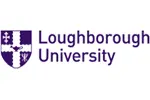About Publishing with English, BA (Hons) - at Department of Information Science, Loughborough University
Publishers work with authors and designers to create and disseminate the knowledge base from which people can retrieve information. Publishing is changing dramatically, and increasingly the industry delivers its products electronically. The philosophy of this programme is to provide specialised education in publishing together with core information modules and the essential grounding in English, to provide the basis on which a career in the publishing industry of the twenty-first century can be built. You may opt to take a year out after Year 2 (the sandwich option) in order to gain professional experience of working in the publishing and information industry while being paid a salary. This option leads to the additional award of a Diploma in Professional Studies.
Year 1Introduction to the Publishing and Information and Society are among the core subjects for the first year.
The Department of English and Drama provides core modules on Language and Text. You also choose specialist optional modules from a wide range offered by English and Drama, such as Critical Studies and Introduction to the Short Story. Information Science provides modules on Informatics, Internet Publishing and Graphic Design and DTP.
Years 2You undertake programme-specific core modules such as Publishing Production, Marketing for Publishers and Authors and Editors, as well as covering important areas such as Human Resource Management and Research Methods.
In the Department of English and Drama you choose between Creative Writing and Victorian Literature, and can also take more options from a wide range, from Women’s Writing in the 17th Century, to Canadian Literature.
In Information Science the options include Informatics and Systems and Database Design.
Years 3/4You follow purely programme-specific modules in the final year, including compulsory ones on the Magazine Business, The Book Trade, Electronic Information Management and Legal and Professional Issues. Again a wide range of relevant English and Drama and Information Science optional modules is open to you.
The final-year project offers you the opportunity to study a topic of your own choice in depth with an individual supervisor.
Professional TrainingIf you take the four year sandwich option you will undertake paid professional training for twelve months during Year 3, leading to the further award of a Diploma in Professional Studies (see also p 36). A tutor will visit you and your employer from time to time and provide guidance with your assessed work. Recent placements have included: IPC Magazines, Oxford University Press, Carfax Publishing and the British Tourist Authority.
The Department provides guidance and help in arranging a suitable placement. The placement is assessed by employer and student reports and by a project which you undertake for your employer. At the end of Year 1 you can transfer between the three year and four year programmes.
Careers and Further StudyThe Department, in conjunction with the University’s Careers Service, offers practical help with job applications and interviews and advice on professional qualification. All students in our last cohort obtained employment within six months of graduating. Recent first career destinations include Editorial Assistant, Ladybird Books; Media Sales/Sales Executive, Hobsons Publishing; Production Editor, Woodhead Publishing; Corporate Finance Researcher, KPMG; Academic Publisher, Institute of Electrical Engineering; Assistant Editor, Haymarket Publishing; Assistant Editor, Publishing Industries Research Association; Editorial Assistant, Association of Commonwealth Universities; Sales and Marketing Secretary, Reed Publishing; Knowledge Point Consultant, PricewaterhouseCoopers; Researcher, KPMG.
AssessmentEmphasis is placed on encouraging your independence, study skills and ability to contribute to group activity.
Module assessment varies from 40% to 100% coursework, the balance being examinations.
Coursework assessment methods include practical projects, reports, essays, structured exercises, group presentations and work with computer systems and databases. To achieve satisfactory progress on some modules, students will be expected to undertake preparation for classes and non-assessed exercises from time to time. Year 1 (Part A) 100 credits are required to proceed to Part B. Year 2 (Part B) and Year 3/4 (Part C) contribute to the final degree classification in the ratio 40:60.


